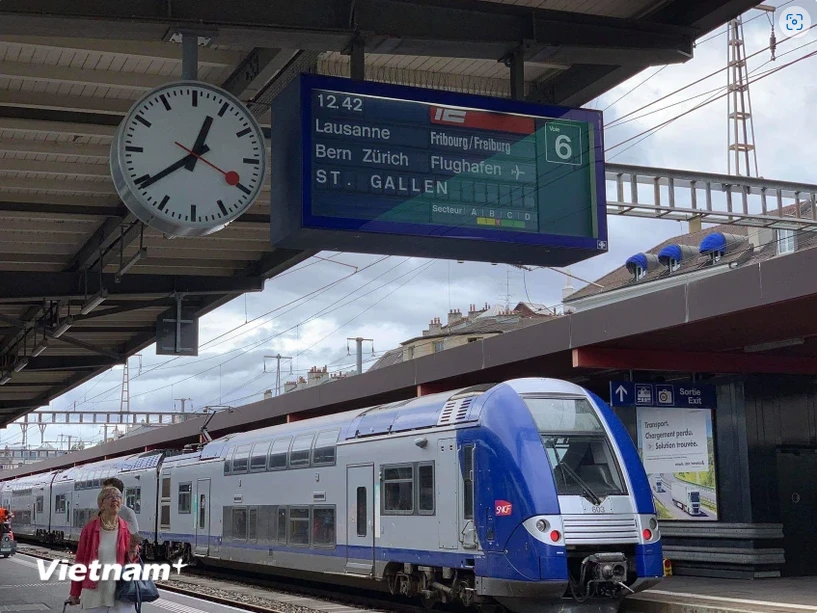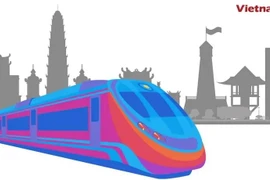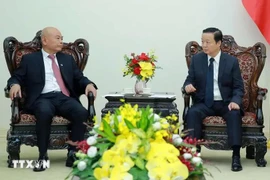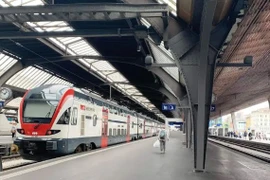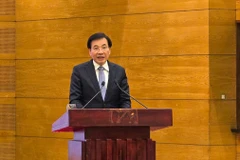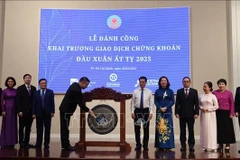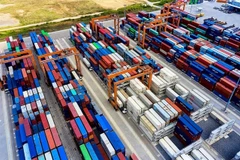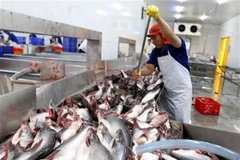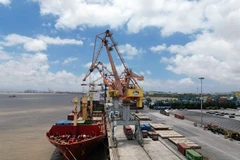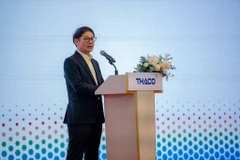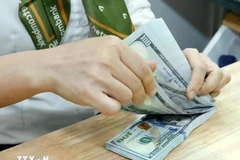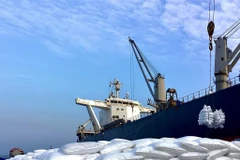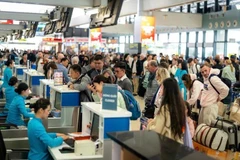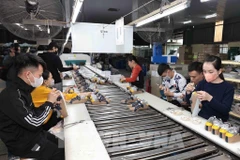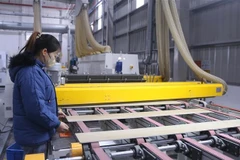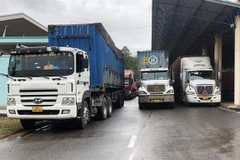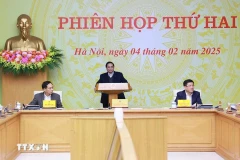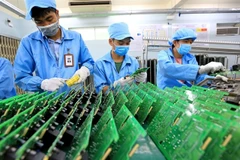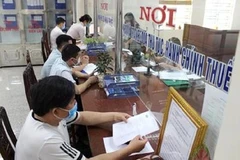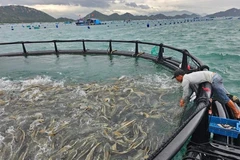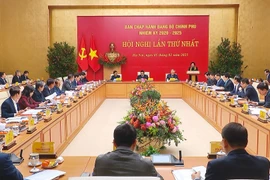Hanoi (VNA) – The North-South high-speed railway project, spanning 1,541 km, with 60% of the route consisting of bridges and the remainder made up of ground and tunnels, will provide a significant opportunity for domestic contractors.
Recognising this opportunity, major domestic contractors have made thorough preparations to qualify for the project.
Dinh An Group has worked with foreign partners and organisations, the University of Transport and Communications in Hanoi, the Ho Chi Minh City University of Transport, and other corporations to organise training courses for its staff, workers, and technical experts, enabling them to obtain relevant certifications in preparation for the project, according to Dinh An’s Chairman, Cao Dang Hoat.
Hoat said that his group has strengths in both human resources and finance, and that, from a technical perspective, high-speed railway projects typically involve overpasses, tunnels, and roadbeds similar to expressways, allowing domestic contractors to effectively carry out the work.
He noted that 20-30 Vietnamese contractors, including Deo Ca Group, Truong Son Corporation, Trung Nam Group, Trung Chinh JSC, Cienco 4, and Son Hai Group, have the capacity to build high-speed railway infrastructure.
The North-South expressway projects provided them great experiences to overcome major challenges, including the COVID-19 pandemic, price hikes and shortages of materials, and land clearance delays.
Pham Van Khoi, Chairman and General Director of Phuong Thanh Transport Construction and Investment JSC (Phuong Thanh Tranconsin), said that high-speed railways require greater precision and structural rigidity compared to roads.
He recommended hiring foreign experts for design, supervision, and quality control during construction.

Ngo Truong Nam, General Director of Deo Ca Group, said for large-scale projects, the group advocates prioritising domestic enterprises with strong management capabilities, particularly those based in the localities where the projects pass through.
For high-speed railway projects, Nam suggested establishing a mechanism to enable these enterprises to participate. Specifically, components similar to those in road projects, such as bridges, roads, and tunnels, should be allocated to domestic companies. Components like locomotives, rolling stock, and signaling and information systems should be developed by domestic enterprises in collaboration with foreign partners through joint ventures.
To capitalise on opportunities presented by railway projects, Deo Ca Group has partnered with universities to recruit and train high-quality personnel. Additionally, it has studied the railway and metro industries in developed countries such as France, the US, China, and Japan to identify suitable training programmes and invite experts to Vietnam.
According to the proposed roadmap, the construction of the North-South high-speed railway project is set to begin in 2027 and be completed by 2035. To ensure the plan stays on track, Vietnamese contractors have agreed that preliminary design surveys, site clearance, and material supply must be done ahead of the project's commencement.
"It is essential to ensure that when the project begins, contractors have access to the site to carry out the simultaneous construction of all components, meeting the stringent technical requirements of the high-speed railway," Hoat said.
To ensure progress, State agencies must ensure funding, conduct thorough design surveys, and offer advice to investors. They should accurately determine standard unit price coefficients, select contractors with sufficient financial capacity and experience, and establish a clear mechanism for sourcing materials. Hoat emphasised that site clearance must be fully completed before the bidding process begins.
In addition to contractors' preparation in terms of human resources and specialised machinery and equipment, the project should be divided into large packages, he suggested. He explained that smaller packages would lead to fragmented management and supervision, ultimately reducing efficiency.

Khoi from Phuong Thanh Tranconsin shared this view, adding that dividing the project into major bidding packages would allow contractors to optimise their capabilities. The selection process should be carefully carried out to ensure right contractors are appointed.
Deputy Minister of Transport Nguyen Danh Huy noted that Vietnam has a contingent of contractors capable of handling all types of transport infrastructure, making the high-speed railway project a valuable opportunity for them./.
